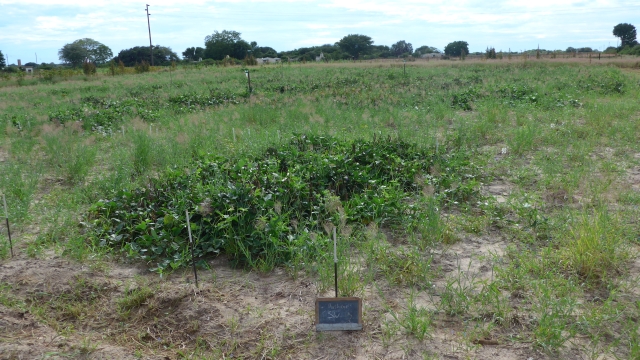TOPSOIL - Towards Improving Food Security for Smallholders in Dry Southern African Climates

Photo: IfB, UHH
Project description
Low crop productivity combined with deteriorating soil fertility is a general problem of smallholder agriculture in sub-Saharan Africa, including in the Kavango region of Namibia. Soil analyses indicate that agricultural productivity here is impaired in particular by a lack of nitrogen, and locally also of phosphorus. Aerial nitrogen-fixing nodule symbioses of legumes and forage legumes with rhizobia can provide an important input of nitrogen and organic matter, a process that has not yet been targeted in this region.
The aim of the collaborative project is therefore to introduce an adapted rhizobial inoculant for legumes that is suitable not only under the current climatic conditions characterised by dry phases during the growing season, but also under future conditions that will be exacerbated by the predicted climate change. The subprojects examine whether and how the soil properties change.
Employees at the Institute of Soil Science
- Postdoc: Dr. Jona Luther-Mosebach
- Duration: 2017 - 2020
- Project lead: Prof. Dr. Annette Eschenbach, Dr. Alexander Gröngröft (retired)
- Sponsor: Federal Ministry of Education and Research (BMBF), PT DLR and German Academic Exchange Service (DAAD)
